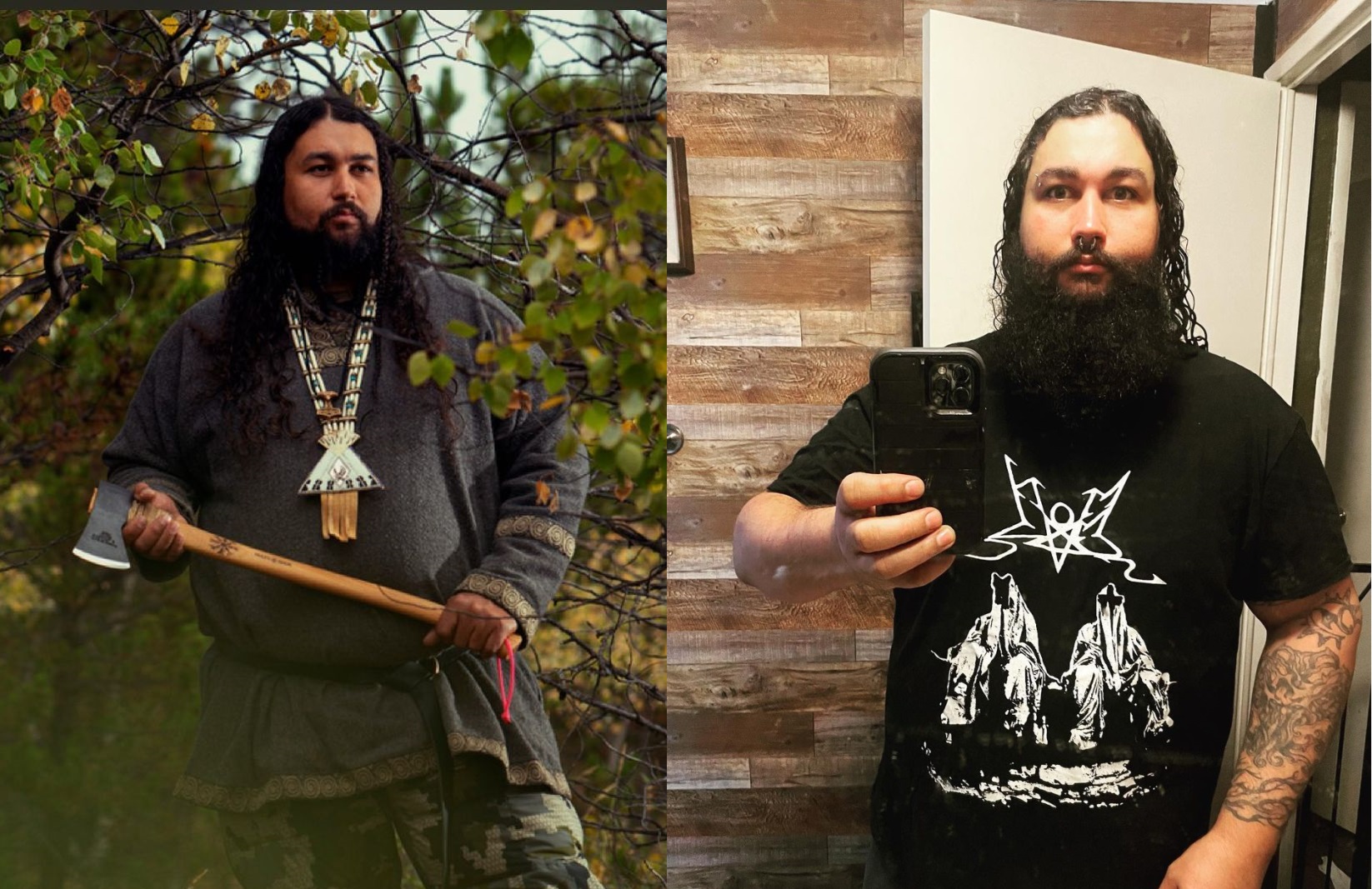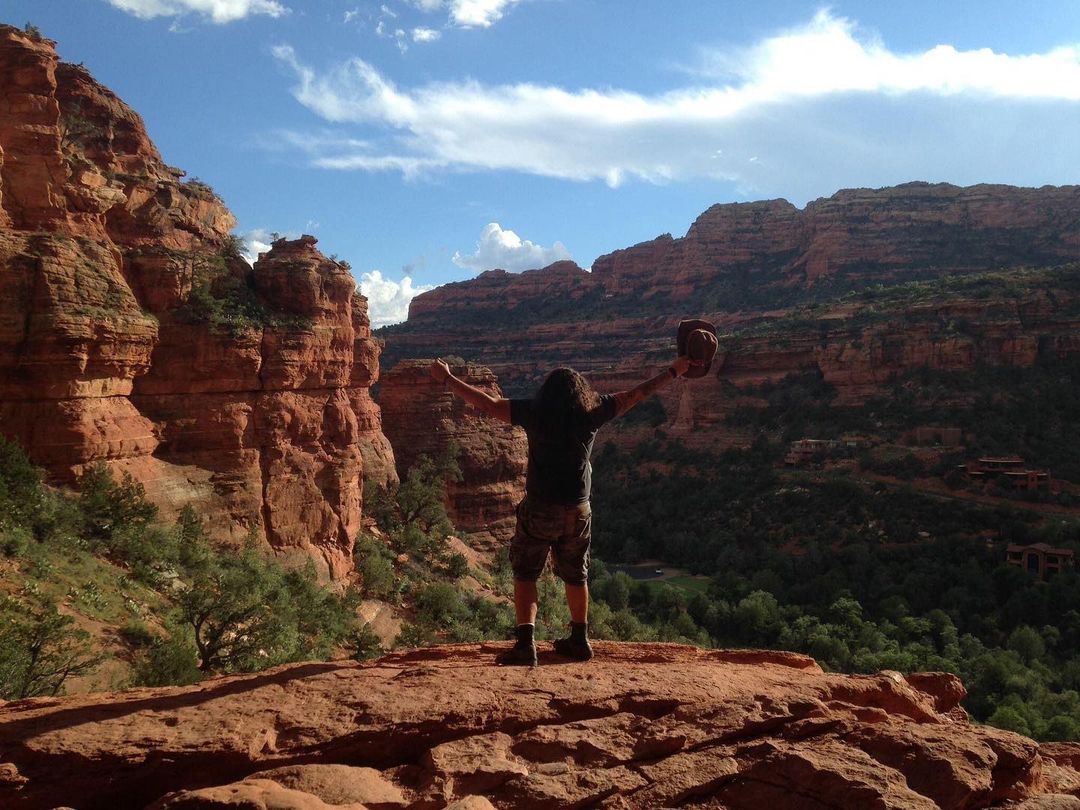Biko Wright’s weight loss journey caught public attention during the riveting eighth season of History Channel’s reality show “Alone.”
Competing for survival in the wild, participants undergo extreme challenges, often leading to significant weight loss due to the harsh living conditions and limited food resources.
Wright’s experience was no exception. His ordeal lasted for 26 days in the Canadian wilderness, where his weight dropped remarkably.
The physical demands of survival not only took a toll on his body but also shed light on the intense impact such environments can have on an individual’s health.
Amidst these trying conditions, Wright’s weight loss became a consequential part of his story on the show.
Lack of adequate nutrition and the sheer effort needed to sustain oneself in the wild contributed to his physical transformation.
Though strenuous, Wright’s determination saw him through to catch a rainbow trout, which was an essential step back towards nourishment.
His experience raises awareness about the relationship between diet and survival, and the after-effects of participating in such an extreme endeavor.
Reader's Roadmap
Key Takeaways
- Biko Wright experienced significant weight loss on the survival show “Alone.”
- His 26-day survival challenge highlighted the critical role of diet in extreme conditions.
- Wright’s post-show life continues to draw interest as fans follow his journey beyond the wilderness.
Journey of Biko Wright

Biko Wright’s weight loss journey on “Alone” was as much a mental challenge as it was physical, testing his survival skills and pushing his limits.
Path to Alone Season 8
Biko’s adventure began when he decided to test his survival skills and perseverance on “Alone” Season 8, a reality show on the History Channel that takes contestants to remote wilderness locations.
Contestants like Biko are required to use their expertise to find food, build shelter, and stay healthy, all while being isolated from the outside world.
- Show Premise: Competitors are isolated in the wilderness with limited equipment to see who can last the longest.
- Key Survival Skills: Shelter creation, food procurement, and mental resilience.
Survival Challenges
During his time on the show, Biko faced the daunting challenges of the Canadian mountains with tenacity and determination.
- Harsh Conditions: Consisting of treacherous terrain, unpredictable weather, and the risk of wildlife encounters.
- Nutrition and Health: The scarcity of food led Biko to experience significant weight loss, a testament to the extreme conditions affecting his health.
Shelter and Safety:
- He had to exercise his creativity and use natural resources effectively to build a shelter that would protect him from the elements.
Food and Starvation:
- Biko’s struggle with securing enough food led to him losing 50 pounds during his 26 days in the mountains.
Throughout the experience, Biko’s determination, survival skills, and adaptability were constantly tested, making his journey on “Alone” a true example of human endurance in the face of extreme conditions.
Health and Weight Loss

Biko Wright, known for his tenure on the survival show Alone, underwent a significant weight loss due to insufficient nutrition while in the wilderness. His experience underscores the risks and health concerns associated with rapid weight loss and starvation.
Effects of Starvation
When Biko was on the show, his body entered a state of starvation.
Starvation occurs when someone doesn’t consume enough calories, leading their body to start using fat stores—and eventually muscle mass—for energy.
This process can lead to rapid weight loss, but at a cost. Decreased calorie intake over his 26-day struggle led to a loss of 50 pounds.
- Immediate health effects: Decreased energy levels, nutrient deficiencies, and weakened immune system.
- Long-term health effects: Potential organ damage, heart strain, and complications involving cardiac health.
Dealing with Health Concerns
On returning to a more regular diet, Biko had to carefully manage his nutrition to recover from such an extreme weight loss period.
Healthy eating habits and balanced nutrition are crucial for someone who has gone through what he did.
Improving heart health post-starvation typically includes:
- Gradual reintroduction of foods: To prevent refeeding syndrome, which can be dangerous.
- Monitoring of cardiac function: To ensure the heart is recovering from the strain of starvation.
- Nutritional support: Often in the form of high-calorie, nutrient-dense foods to restore lost weight and nourish the body.
Personal Life

Biko Wright’s journey is a telling tale of a man deeply rooted in nature and tied to his close-knit family. The challenges he faced sharpened his will, but at home is where his heart finds true fortitude.
Biko’s Backstory
Raised near the rugged landscapes of Topanga Canyon, California, Biko’s passion for the outdoors was cultivated from a young age.
His parents, instilling in him the essentials of survival such as hunting and spearfishing, also ingrained a lifestyle of sustainable living.
This early exposure to nature’s raw beauty and harsh realities forged Biko into the resilient individual he is today.
Support System
Biko’s foray into the wilderness wasn’t a solitary endeavor.
His fiancée, standing alongside him, has been a bedrock of support.
Together, they’ve embraced a life that values environmental stewardship—a testament to their shared love for sustainable living.
Settling in Maine, the couple has extended their commitment to nature as they raise their twin daughters.
Biko credits his family, including the twins, as his source of strength and inspiration, fueling his endeavors and reinforcing his connection with the natural world.
Dietary Impact on Survival
Surviving in the wild has a profound impact on one’s physical health, where sourcing nutrition and diet variation become crucial for survival.
Sourcing Nutrition in the Wilderness
In the wilderness, Biko Wright faced the challenge of finding food that was both safe to eat and nutritious.
Without access to supermarkets or convenience stores, he had to rely on the natural resources around him.
The variety of foods he sourced included anything from rainbow trout to wild berries.
Protein sources, such as fish, became a vital component of his diet, providing the energy to sustain himself in the demanding environment.
Importance of Diet Variation
A varied diet is essential for getting the broad spectrum of nutrients the body needs.
While surviving, Wright may have lacked the nutritional diversity that a balanced diet usually offers, which typically includes fruits, vegetables, grains, and dairy.
Prolonged periods of nutrient deficiency can lead to health issues, emphasizing the importance of a varied diet for overall health and successful weight management.
Even in survival scenarios, finding diverse food sources can have a crucial impact on one’s ability to thrive.
Post-Show Developments

After grueling survival challenges on “Alone,” Biko Wright’s journey didn’t stop when the cameras turned off. He has continued to captivate his audience with his ongoing endeavors and lifestyle adjustments post-show.
Season 9 and Beyond
Since placing as the runner-up in Alone Season 8, Biko hasn’t been resting on his laurels.
The resilience he forged in the wild has propelled him into Season 9 and beyond, where he’s expected to utilize his survival skills in new and demanding environments.
Fans are eager to see how his experiences on the show will translate into future seasons, should he choose to return.
His participation has not just been about enduring the elements but also about personal growth and pushing the boundaries of his survival knowledge.
Life After Survival
Life off the screen has been a significant adjustment for Biko. The strenuous nature of his time in the wilderness meant that recovering his strength and returning to a routine was paramount.
He has been open about integrating exercise and strength training into his daily regimen. He aims to replenish the weight he shed and rebuild the physical vitality crucial for survival.
His commitment to recovering not just physically but also mentally resonates with survivors and fans alike. Many of them look to him for inspiration.
His post-show life is a testament to the importance of not only surviving the challenge but thriving beyond it.







Leave a Reply
View Comments